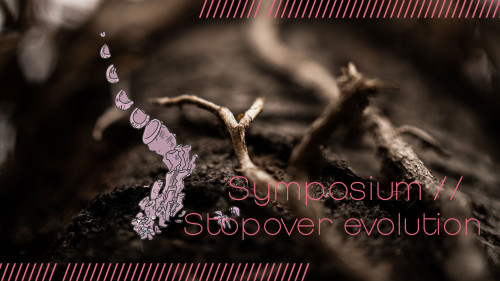
- Diese Veranstaltung hat bereits stattgefunden.
zamus: musiklabor // Symposium // Stopover evolution
25. Mai 2022 - 10:00

A snapshot of where we stand in early music and where we are heading.
Music as an evolutionary process is a controversial subject that has only become a popular research topic in recent years.
We will approach this vast domain from four different perspectives, their respective connections, and their significance to historically informed performance practice.
Among the topics we will tackle are the evolution of the violin, the origins of music, the effect of music on our daily bodily functions, the development of music education and the crucial role of HIP in this process, and the sociological origins of music and its evolutionary purposes.
As part of the symposium our ’zamus: academy‘ participants and their teachers will present a concert connecting some of these theoretical ideas with practical concert experience.
The symposium will be moderated by Prof. Peter van Heyghen, who will lead an open discussion with all presenters at the end of the day.
Admission free – live on site and online via zoom In English.
Registration for free tickets for online or on-site attendance is required. Snacks and drinks available on site.
more info on: https://www.zamus.de/kalender/zamus-early-music-festival-stop-over-evolution-symposium/
Timetable
10:00–10:40
Violin: Evolution, progress or change?
Prof. Richard Gwilt, Hochschule für Musik und Tanz Köln
10:50–11:30
Musical education yesterday, today and tomorrow
Prof. Leonard Schelb (traverso), Hochschule für Musik und Tanz Köln // Prof. Clara Blessing (oboe), Hochschule für Musik Würzburg
Break
13:00–13:50
Concert
Students and Teachers of zamus: academy
Concert attendance is also possible without participation in the symposium
Break
14:10–14:50
Love, war or soothing infants – The debate on the origin of music from the perspective of its basic function(s)
Prof. Dr. Melanie Wald-Fuhrmann, Max-Planck-Institut für empirische Ästhetik, Frankfurt am Main
15:00–15:40
Evolutionary origins of musics – Arguments from emotion research!
Prof. Dr. Eckart Altenmüller, Hochschule für Musik, Theater und Medien Hannover, Institut für Musikphysiologie und Musikermedizin
Break
16:00–16:40
Panel discussion
Prof. Peter van Heyghen, Moderation
